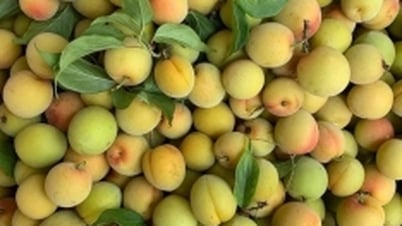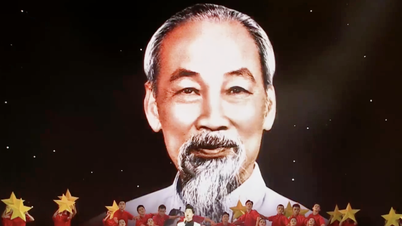China announced retaliatory tariffs of up to 100% on some Canadian goods, fueling a trade war between the two countries.

Canadian pork imported into China will be subject to an additional 25% tax - Photo: AFP
China recently announced tariffs on Canadian agricultural and food products, in response to the tariffs Ottawa imposed last October on electric vehicles, steel and aluminum products produced in Beijing, Reuters reported on March 8.
According to an announcement from the Chinese Ministry of Commerce, these tariffs will take effect from March 20, creating a new trade war that has been started since US President Donald Trump decided to impose tariffs on Canada, Mexico and China, along with threats of protectionist measures against many other countries.
Beijing will impose a 100% tariff on canola oil, oil cakes and peas imported from Ottawa. In addition, Canadian seafood and pork exports to China will be subject to a 25% tariff.
Reuters said that China's new tax rate is a response to the tariff policy that Canada has applied to this country since October 2024.
Accordingly, the Chinese Ministry of Commerce criticized Canada for imposing a 100% tax on Beijing's electric vehicles and a 25% tax on its aluminum and steel products, affirming that this was an action that "disturbed the normal trade order and harmed the legitimate rights and interests of Chinese enterprises."
In addition, Canada's tariff policy also "seriously violates the rules of the World Trade Organization (WTO), is a typical and discriminatory protectionist act, and seriously harms Beijing's legitimate rights and interests."
"China urges Canada to immediately correct its wrong actions, lift the restrictive measures and eliminate the negative impacts," a spokesperson for the Ministry of Commerce said.
Earlier in August 2024, Canadian Prime Minister Justin Trudeau announced the imposition of these tariffs to counter China's state-directed policy of overproduction.
He stressed that Canada is following in the footsteps of the United States and the European Union, which have also imposed import tariffs on electric vehicles made in Beijing, in an effort to stem the flood of Chinese electric vehicles into the North American market.
Canada's second largest trading partner
According to AFP, Canada is one of the world's leading producers of canola - a crop used to produce cooking oil, animal feed and biofuel. China used to be one of Canada's biggest customers in this industry.
However, relations between the two countries have been severely strained since 2018, when Canada arrested Meng Wanzhou, a senior executive of Chinese technology giant Huawei. In response, Beijing detained two Canadian citizens.
China is by far Canada's second-largest trading partner, but behind the United States by a large margin.
Source: https://tuoitre.vn/trung-quoc-danh-thue-100-mot-so-san-pham-cua-canada-leo-thang-cang-thang-2025030810112539.htm


![[Photo] President Luong Cuong presents the 40-year Party membership badge to Chief of the Office of the President Le Khanh Hai](https://vphoto.vietnam.vn/thumb/1200x675/vietnam/resource/IMAGE/2025/5/19/a22bc55dd7bf4a2ab7e3958d32282c15)
![[Photo] General Secretary To Lam attends the conference to review 10 years of implementing Directive No. 05 of the Politburo and evaluate the results of implementing Regulation No. 09 of the Central Public Security Party Committee.](https://vphoto.vietnam.vn/thumb/1200x675/vietnam/resource/IMAGE/2025/5/19/2f44458c655a4403acd7929dbbfa5039)

![[Photo] Panorama of the Opening Ceremony of the 43rd Nhan Dan Newspaper National Table Tennis Championship](https://vphoto.vietnam.vn/thumb/1200x675/vietnam/resource/IMAGE/2025/5/19/5e22950340b941309280448198bcf1d9)
![[Photo] Close-up of Tang Long Bridge, Thu Duc City after repairing rutting](https://vphoto.vietnam.vn/thumb/1200x675/vietnam/resource/IMAGE/2025/5/19/086736d9d11f43198f5bd8d78df9bd41)







![[Photo] Explore the Great Wall of Water in the Suburbs of Beijing, China](https://vphoto.vietnam.vn/thumb/402x226/vietnam/resource/IMAGE/2025/5/5/c2e706533d824a329167c84669e581a0)






















![[Photo] Prime Minister Pham Minh Chinh inspects the progress of the National Exhibition and Fair Center project](https://vphoto.vietnam.vn/thumb/1200x675/vietnam/resource/IMAGE/2025/5/19/35189ac8807140d897ad2b7d2583fbae)





















































![[VIDEO] - Enhancing the value of Quang Nam OCOP products through trade connections](https://vphoto.vietnam.vn/thumb/402x226/vietnam/resource/IMAGE/2025/5/17/5be5b5fff1f14914986fad159097a677)





Comment (0)